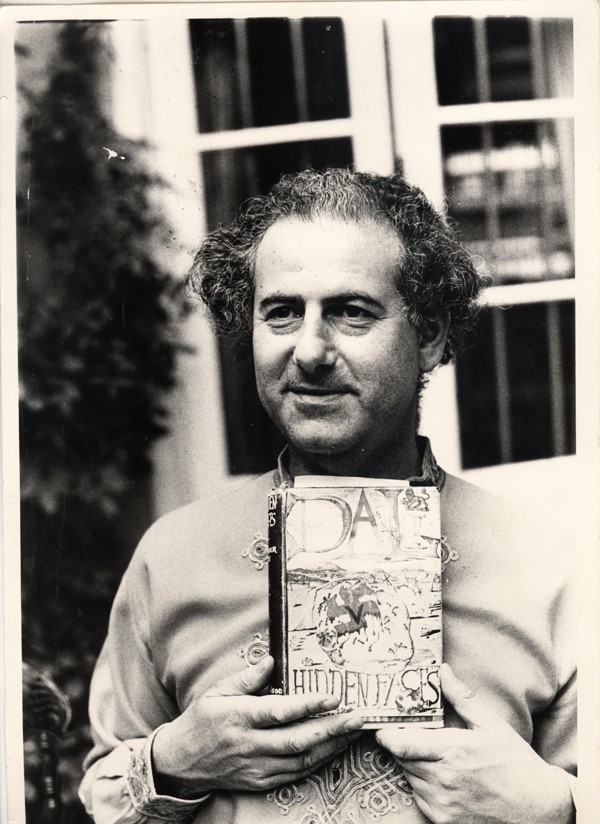This month marks the 60th anniversary of one of London’s oldest independent book publishers, Peter Owen Publishers. In an interview with AnOther, 83-year-old Peter Owen sits among his books and papers in his West London home, surrounded by the
"I went to stay in Cadaqués, where Salvador Dalí had a house. He had designed a penis-shaped swimming pool that he loved to use whenever the weather was good. By this time, he was living there with only his housekeeper – his wife Gala had already moved to an old castle he had bought for her to retire to in Púbol. I told Dalí that I would like some illustrations from him. We agreed on what was then a fairly stiff advance, and I was told the illustrations would be ready in about six weeks. The next day, we were discussing terms and things and I went to see him in the house. He was by the swimming pool with his then-muse Amanda Lear, who was a transsexual. Of course, I didn’t know that – she just seemed like a very attractive girl.
When I returned six weeks later, I wasn’t terribly pleased with the drawings Dalí had made. It looked like he had scribbled them in bed, that sort of thing. He probably knocked them off fairly quickly. As I arrived, there was a soirée in progress. The wine that was served was a sickly sweet, sparkling, Spanish wine that I believe couldn’t have cost more than a pound per bottle – he wasn’t exactly known for his philanthropy. There were a lot of people there. One of the big film directors of the time – the one who had just done a Bond film – had come to buy Dalí’s tarot cards.
At the time, Dalí was supposed to be painting Franco’s daughter – maybe it was his granddaughter – and Franco was still alive. Later in the evening they wheeled this thing in [the painting] and Dalí said, "He’s done well today" – implying another painter had worked on it. Dalí, I assure you, was quite adept at business and would do anything for money. He once reminded me that the American rights for the book we were working on hadn’t been converted. Though it was a legal technicality Dalí insisted I look into it, saying "I know these things, I’m a notary’s son." Once the book was printed, I returned to Cadaqués once more – this time with my then-wife – to get the limited editions of the book signed by Dalí. He greeted us in a Moroccan kaftan that he had put on especially for us. He looked like a middle-aged man with a dyed moustache. He was the epitome of a conman – but one with talent!"
This month marks the 60th anniversary of one of London’s oldest independent book publishers, Peter Owen Publishers. In this interview with AnOther, 83-year-old Peter Owen sits among his books and papers in his West London home, surrounded by the wreckage of six decades of service to the European literary avant-garde including a haphazardly framed drawing by Picasso, a doodle by Jean Cocteau. Here, he tells the strange, meandering tale of the time he published a book by Salvador Dalí.
Dalí attempted his first – and thankfully, only – work of fiction in 1944, later publishing it in 1973 with Peter Owen as his harried but devoted editor. By that point Peter had edited the works of nearly every major literary figure in Europe – Henry Miller, Gertrude Stein, Herman Hesse, Colette and Jean-Paul Sartre, to name a few. At the suggestion of friend (and rumored lover) Federico García Lorca, Dalí had written what he referred to as a ‘pure novel’ – a book that many reviewers would generously describe as ‘extravagant’ and ‘adjective-laden’ (one reviewer called it ‘a psychotic mess’). Hidden Faces sketched the social and sexual exploits of a bunch of aristocratic socialites – an obvious and barely fictionalised account of Dalí and his friends’ ostentatious lifestyle. In fairness to Dalí, there was a certain expectation at that time that talent be accompanied by a heavy dose of eccentricity – no self-respecting genius left home without his peacock, frock and at least two-dozen hangers-on. Though even in such an extravagant atmosphere, Dalí managed to push the limits of propriety and good taste. One can easily imagine how being his editor would require Peter to be part-supplicant, part-cat herder.
Text by Julie Cirelli
